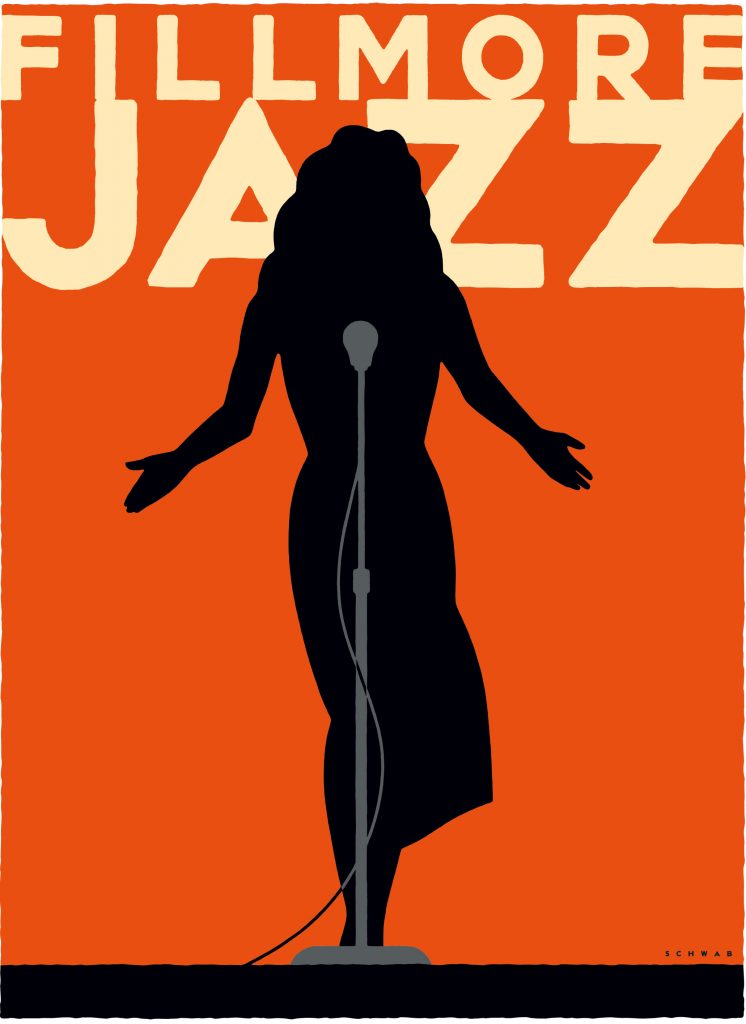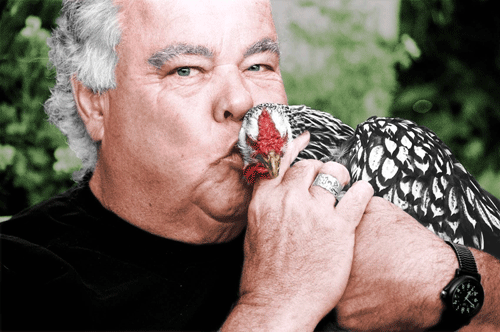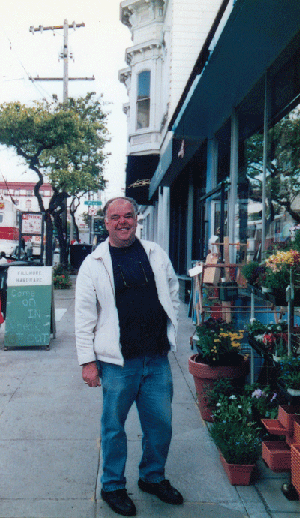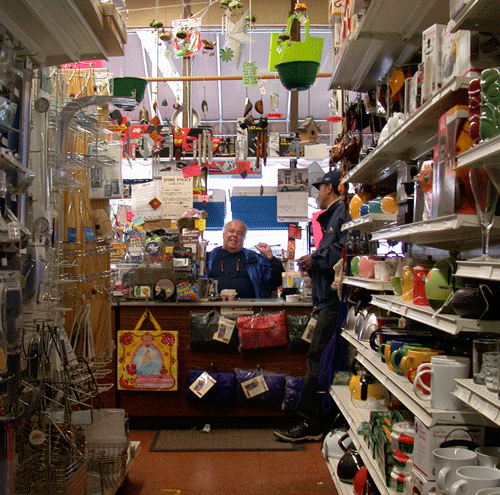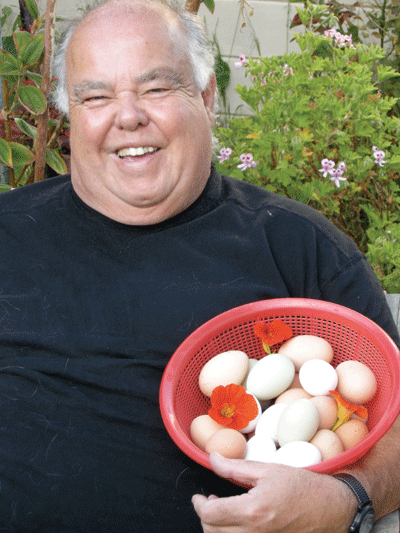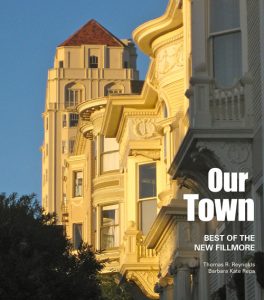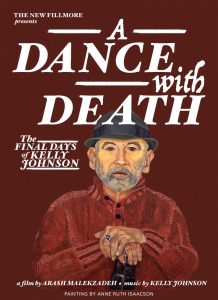For 40 years, Phil Dean ran Fillmore Hardware
By BARBARA KATE REPA and THOMAS REYNOLDS
It’s late on a Friday afternoon, and Phil Dean, longtime manager of Fillmore Hardware, gets into his truck in Pacifica and makes the drive he’s made so many times: up Skyline Drive, onto the Great Highway, past Ocean Beach. He turns right on Fulton and drives along Golden Gate Park as he makes his way back to Fillmore Street.
He retired in 2006, but he’s never left behind the neighborhood he’s been a part of for most of his adult life. His fingerprints are on nearly every home — lumber he sold, paint he mixed, repairs made according to advice he dispensed.
For an hour on Friday afternoon, just before closing time, he’s back behind the counter of the hardware store, still greeting customers and occasionally giving advice or cutting keys — and delivering eggs, some of them gathered from his henhouse earlier that day.
Fillmore Hardware opened in 1961 on a site that had been a parking lot. A few years later, Phil married Nancy Hayes, whose family owned the store then, and still owns it today. His wife’s mother, Mickey, ran the store. Her father, Jim Hayes, was also actively involved, in addition to holding down a day job as a police officer. Now 88, he’s still involved, although much of the work is handled by his two other daughters, Patti and Terri.
When Mickey Hayes died in 1966, the family needed help at the store. Phil was working at the Metropolitan Life Insurance Company. “I told them, ‘Well, I’ll just help out temporarily,’” he chuckles. “And I stayed for 39 years.”
After he and Nancy divorced in 1975, Phil was primarily responsible for raising their two sons, Eric and Elliott, who became fixtures at the store.
In its early days, the store was twice as big as it is today. It was a full-service hardware store, and it prospered as people began realizing the possibilities for the hundreds of nearby Victorians — some magnificent, many neglected. “In the ’60s, you could buy anything on Pine Street or California Street — all those old Victorians — for $20,000,” Phil says. “When people started to buy that property and fix it up, the neighborhood went through a great revival.”
But the turnaround took a few years, and in the meantime, the area could be rough. “I had a guy hold a .38 revolver to my stomach and tell me to hand over all the money — no checks, just cash,” Phil says. “Another time I was held up and hit and almost knocked out.”
A few years later, disaster struck. A fire broke out. When it was over, the building was still standing, but there was severe water damage and most of the merchandise had to be liquidated. The store was divided and half was rented to Radio Shack. It is now home of the Shade Store.
Over the years, Fillmore Hardware’s goods and services have evolved to meet the needs of the changing neighborhood. The glass business is no more. Since Phil left, they no longer mix and sell paint, and there is less plumbing and electrical equipment.
The store now offers more of the quirky gifts and oddities that distinguish it from the typical hardware store. “A while back, we changed the sign out front to Fillmore Hardware & Variety. That was my idea,” he says. “We needed a little bit of something different — and then there was a void to be filled when the Brown Bag closed.”
Phil recalls many changes on Fillmore during the last four decades.
“Back in the ’60s, Fillmore was more like a little community,” he says. “Across the street from the hardware store, there were little nook and cranny stores that sold hippie-type stuff like beads. In one spot, there was a guy who made and sold phony IDs. And people lived in the back. It was like a little village.”On Fillmore near Sacramento was Florence’s five and dime. “The store was all mumbo jumbo, no rhyme nor reason to it,” Phil says. “And Florence herself was quite a character. She packed a .38. Once, when the landlord wouldn’t fix a leaky ceiling, she set out tubs all over the store and collected the leaking water. Then she went next door and slung them in the landlord’s place. She got a new roof.”
Florence’s place later became Fillamento, the much-loved home and gift store that closed its doors in 2001, and is still fondly recalled. “When Fillamento went out of business, that was such a shame for the street,” says Phil. “It was the fashion plate for Fillmore Street. People knew about that store all over.”
These days, Phil spends most of his time at home in Pacifica, just a stone’s throw from the ocean on a quiet residential street where the neighbors take pride in their well manicured yards. Phil’s own yard is anything but manicured. It’s a tangled jungle of flourishing plants, flowers and vegetables: petunias, pansies, roses in hot pink and firey red, string beans, zucchini and tomato plants thriving because of his secret weapon. “Feed ’em Bloom,” he advises.
And chickens — about 15 or 20, he guesses. “And one rooster. That’s all you need.” Phil has raised baby chicks into laying hens for the last 35 years or so, these days collecting four or five dozen eggs a week for select customers, some in Pacifica, most back in the city near the hardware store.
“I never name them. I try not to get that attached,” he says. “But I don’t eat them. They know me. And they like me.”
He still misses Fillmore Street. “I go back once a week to deliver to my egg customers, and I always run into folks I know in the store and on the street,” he says. “I sometimes get caught up behind the counter or answering the phone. People come in and say, ‘Oh, you’re back!’ It broke my heart to retire. The hardware store was my family. But I’m having a good life now, making the best of everything.”
GOT HARDWARE?
FIRST PERSON | By Kim Alfaro
In the early ’70s, we moved into our shingle-sided home on Webster Street, just two blocks from St. Dominic’s Church, where we were married. Down the alley and around the corner was Fillmore Hardware, an emporium of significant importance as we embarked upon major home renovations.
The hardware store then occupied twice the space it does now. It became, for us like so many others, a major source of nuts, bolts, screws, sandpaper — all of the things that go into renovations.
Heading Fillmore Hardware was a bear of a man, Phil Dean. He was a fount of practical information. He helped my wife Susan Brady and me learn the basics of numerous trades during our projects.
One Saturday, Phil asked a person in line ahead of me if he wanted his eggs. Yes, he did. So Phil went to the cubbyhole beside the key cutting machine and produced a carton of eggs. I was amazed. Eggs seemed to me an unlikely item for an urban hardware store.
When I inquired, Phil told me he raised chickens on his Pacifica estate and sold them to a select roster of customers in the neighborhood. Sensing something special, I asked if I could buy some. He had an extra dozen, as it happened, but he explained that I would only be a provisional customer. His regulars had first dibs.
That was in the spring of 1973. Over time we became regulars, and we’ve been enjoying Farmer Phil’s marvelous eggs ever since. They are fresh — and they are so large they make the jumbo supermarket eggs look puny by comparison. They’re also multi-hued. A couple of Phil’s hens lay eggs of celadon green, while others produce various shades of brown and white.
Above all, they are absolutely delicious.
When Phil retired a few years ago, we feared it would be the end of our direct connection to the henhouse. I am happy to say that Phil has kept this aspect of his life — and ours — unchanged. He still delivers every Friday afternoon, and we collect them at the hardware store then or on Saturday morning.
For entirely selfish reasons — among many others — we wish Phil and his hens a long and healthy life.


